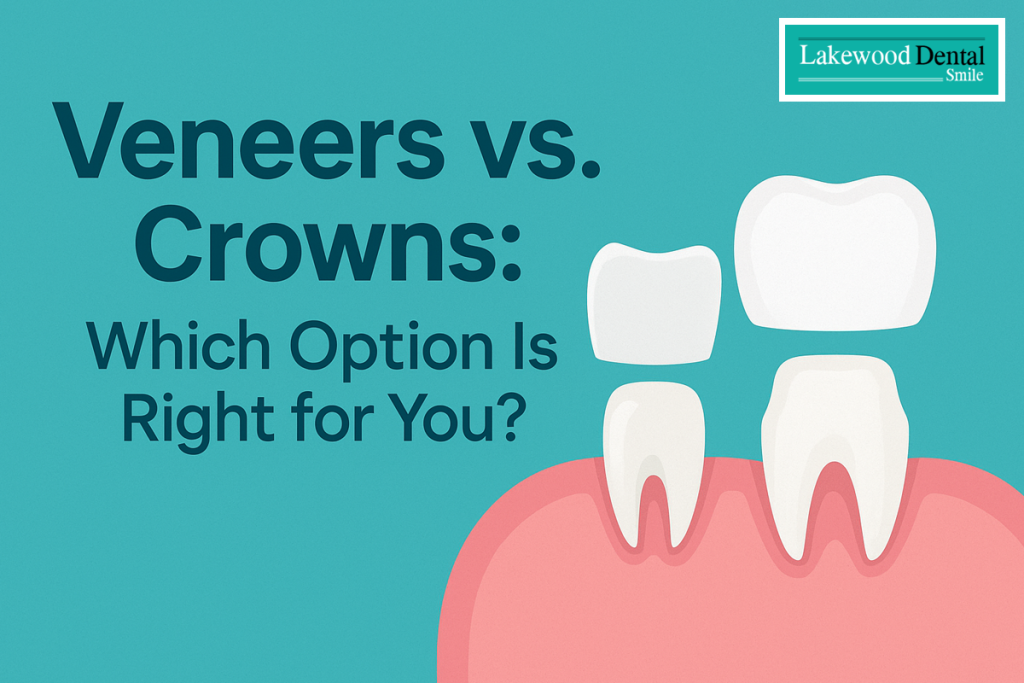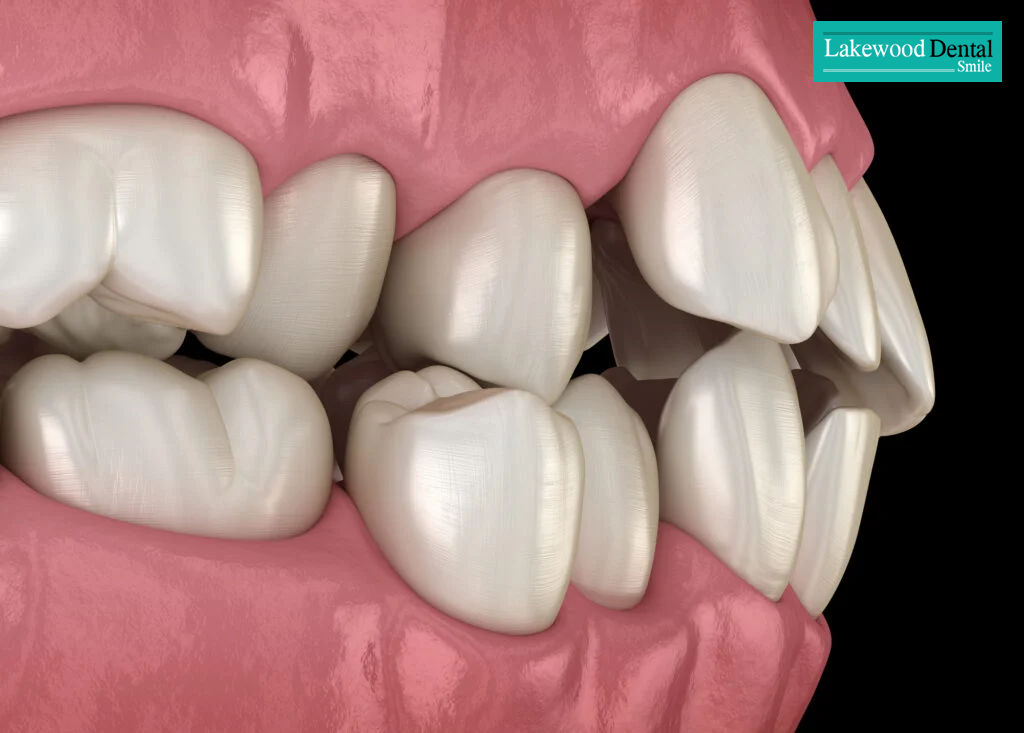When it comes to restoring a broken or damaged tooth, many patients ask whether veneers or crowns are the right solution. Both treatments can improve the appearance and functionality of your teeth, but choosing the right one depends on your dental health, cosmetic goals, and budget. In this guide, we’ll break down the differences, benefits, and ideal use cases for each option so you can make an informed decision.

What Are Veneers?
Veneers are thin, custom-made shells crafted from porcelain or composite resin. They are bonded to the front surface of your teeth to enhance their appearance. Veneers are most commonly used for cosmetic purposes, such as:
- Covering discoloration or stains
- Correcting minor chips or cracks
- Closing small gaps between teeth
- Slightly improving misalignment
Because veneers require minimal removal of your natural tooth structure, they are a conservative option that preserves most of your healthy enamel. They provide a natural, polished look and are especially popular for improving the aesthetics of front teeth.
What Are Crowns?
Crowns, also known as dental caps, encase the entire tooth, restoring its shape, strength, and function. They are recommended for teeth that are:
- Severely decayed or cracked
- Weakened due to large fillings
- Treated with a root canal
Crowns are custom-made to blend seamlessly with your natural teeth and are constructed from durable materials such as porcelain, ceramic, or metal. While they serve an aesthetic purpose, their primary goal is structural protection and long-term durability.
Veneers vs. Crowns: Key Differences
When deciding between veneers or crowns, it’s essential to understand their key differences.
- Purpose
– Veneers: Ideal for cosmetic improvements and minor damage.
– Crowns: Better for significant damage, weakened teeth, or after root canal therapy.
- Durability
Veneers generally last 7–15 years, depending on your oral habits and maintenance. Crowns are stronger and can last 10–15 years or longer, providing superior protection for compromised teeth. If you grind your teeth, bite nails, or chew hard foods, crowns are usually the safer long-term option.
- Tooth Coverage
Veneers only cover the front surface of the tooth, improving its appearance without fully encasing it. Crowns, in contrast, cover the entire tooth, offering maximum strength, support, and protection against further damage.
Factors to Consider Before Choosing
Selecting between veneers or crowns depends on several personal factors:
1. Tooth Health: Healthy teeth with minor cosmetic flaws are best suited for veneers. Damaged or structurally weak teeth require crowns.
2. Aesthetic Goals: For a natural, seamless smile, veneers can provide a more refined look, especially for front teeth.
3. Durability Needs: Crowns are highly durable and protective, while veneers are more delicate and may need replacement sooner.
4. Budget: Consider both the immediate cost and long-term maintenance. Crowns might involve slightly higher initial costs but offer greater longevity.
Consulting a Professional
The best way to determine whether veneers or crowns are ideal for you is to consult a qualified dentist. A thorough evaluation of your oral health, cosmetic goals, and financial considerations will help your dentist recommend the most suitable option.
If you are located in Dearborn, Michigan, Lakewood Dental Smile provides expert guidance and personalized solutions. Their experienced team explains the pros and cons of both veneers and crowns, ensuring you make an informed choice that suits your teeth and lifestyle.
Conclusion
Choosing between veneers or crowns doesn’t have to be confusing. Veneers are perfect for enhancing your smile with minimal tooth alteration, while crowns offer strong protection and restoration for compromised teeth. By understanding their differences and consulting a professional, you can achieve a healthy, beautiful smile that lasts for years.
👉 Contact Lakewood Dental Smile today to schedule your consultation and restore your smile with confidence!


